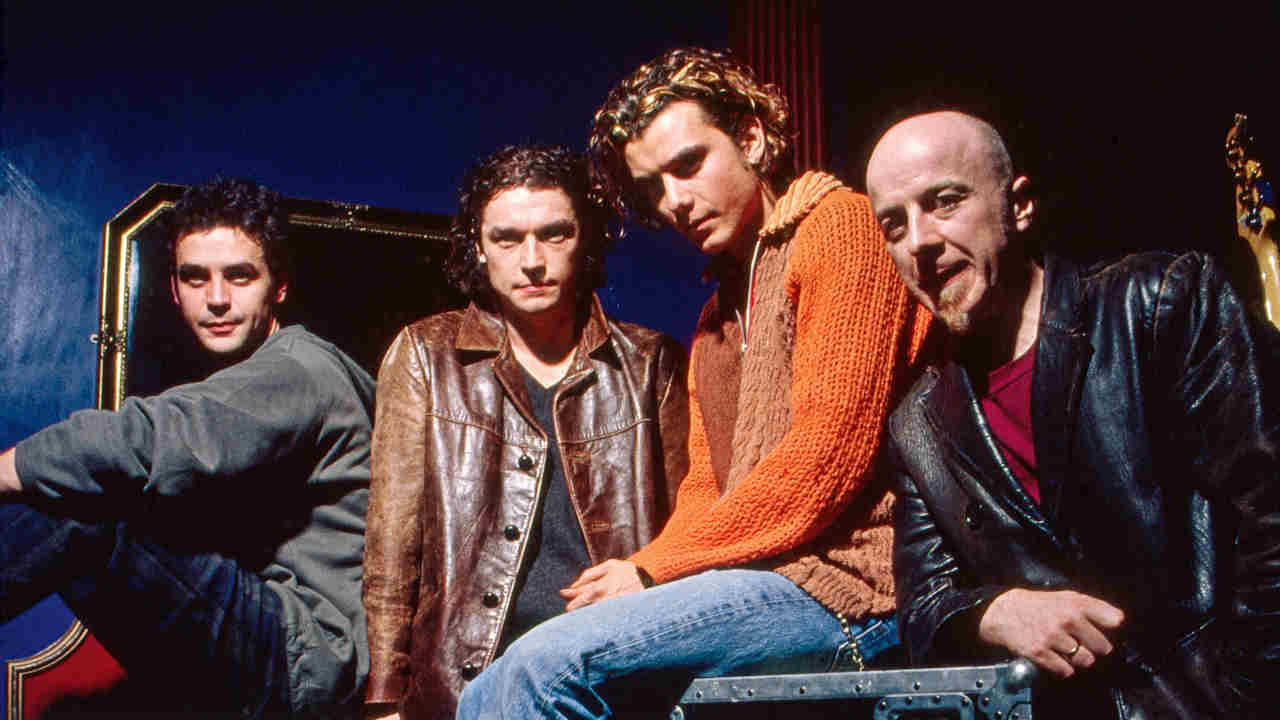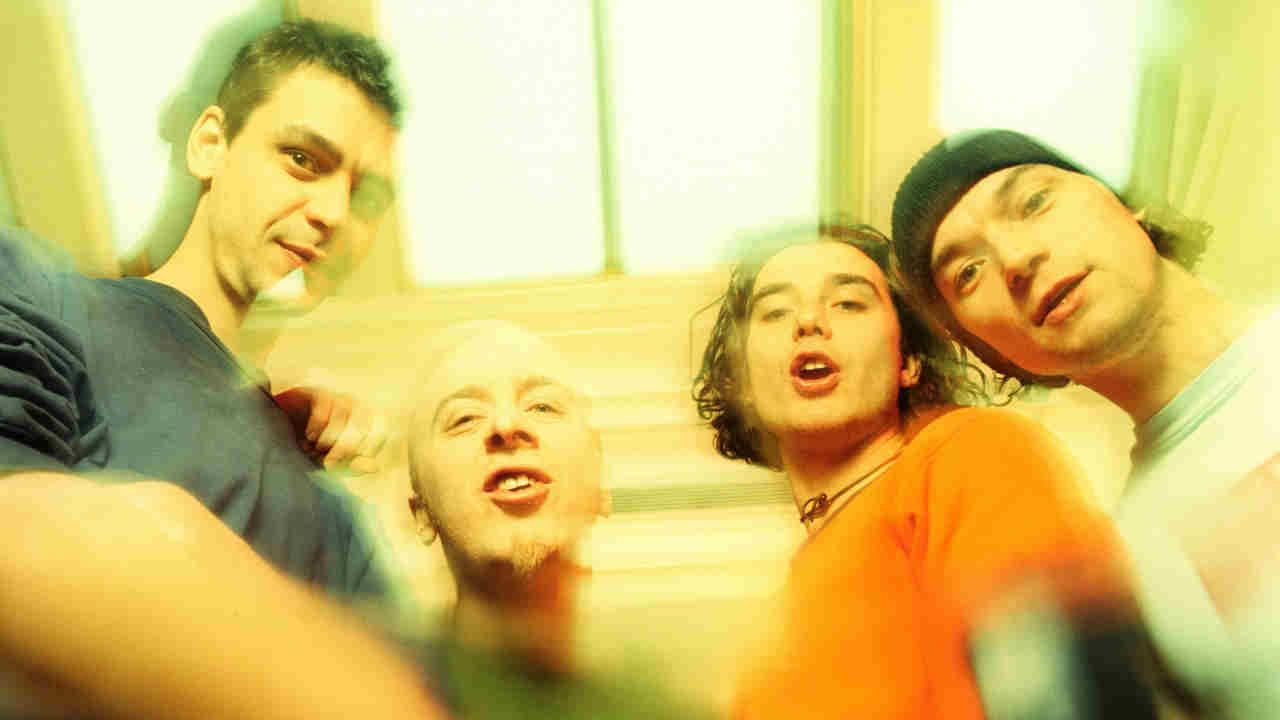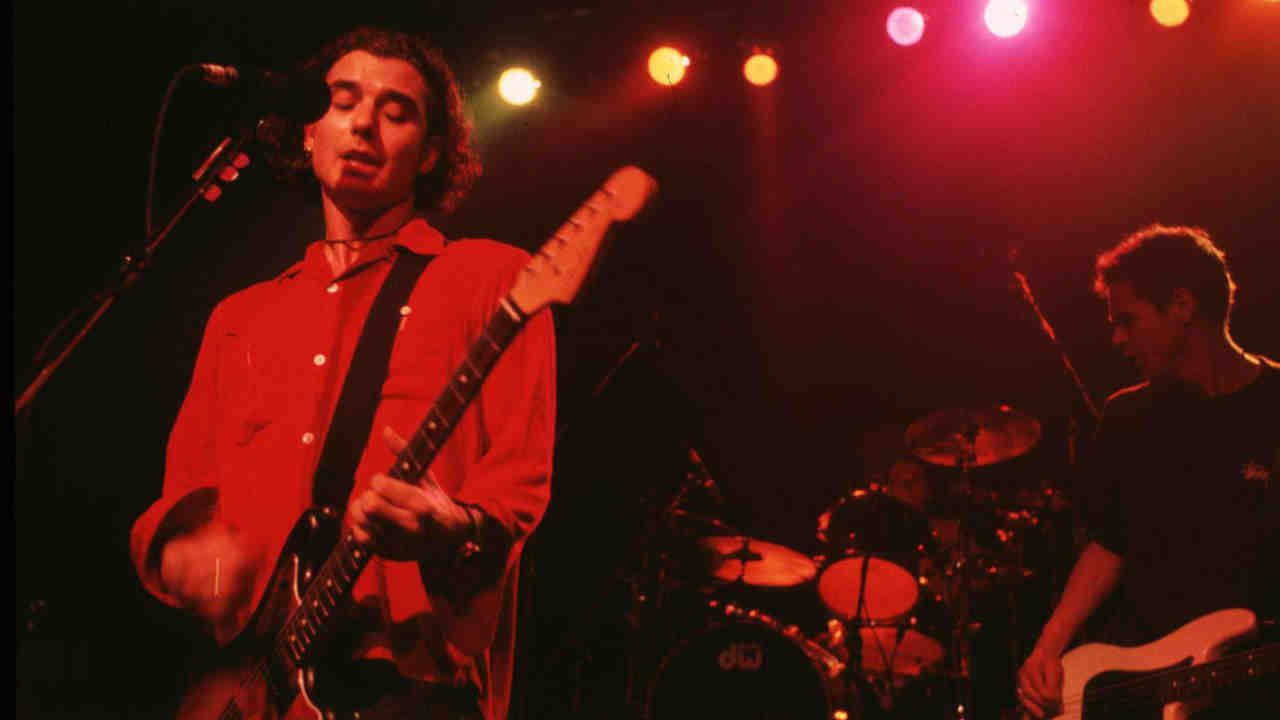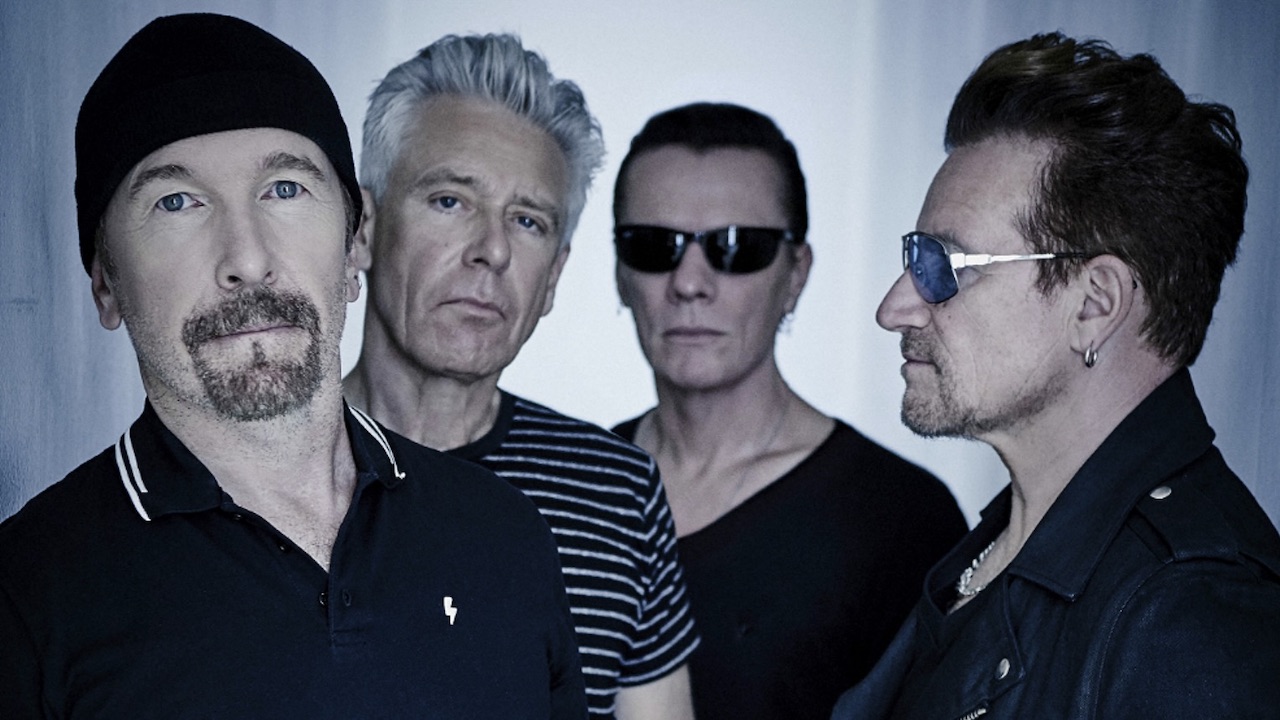“If you’ve experienced failure and rejection, how can you possibly be anything but elated?”: How Bush’s Gavin Rossdale channelled frustration and loss into epic grunge ballad Glycerine
Glycerine was the dark ballad that helped turbocharge Bush’s multi-platinum debut album Sixteen Stone

Select the newsletters you’d like to receive. Then, add your email to sign up.
You are now subscribed
Your newsletter sign-up was successful
Want to add more newsletters?

Every Friday
Louder
Louder’s weekly newsletter is jam-packed with the team’s personal highlights from the last seven days, including features, breaking news, reviews and tons of juicy exclusives from the world of alternative music.

Every Friday
Classic Rock
The Classic Rock newsletter is an essential read for the discerning rock fan. Every week we bring you the news, reviews and the very best features and interviews from our extensive archive. Written by rock fans for rock fans.

Every Friday
Metal Hammer
For the last four decades Metal Hammer has been the world’s greatest metal magazine. Created by metalheads for metalheads, ‘Hammer takes you behind the scenes, closer to the action, and nearer to the bands that you love the most.

Every Friday
Prog
The Prog newsletter brings you the very best of Prog Magazine and our website, every Friday. We'll deliver you the very latest news from the Prog universe, informative features and archive material from Prog’s impressive vault.
Somewhere in the south of France is a ski chalet called Chez Glycerine. It’s owned by producer Clive Langer, whose starry CV includes successful albums by Madness and Elvis Costello. But it was an entirely different band who inspired the name.
“He was losing it,” Bush singer and guitarist Gavin Rossdale says of the gaff in question. “Madness hadn’t put out a record for a minute and Elvis hadn’t written a hit since Shipbuilding.”
Salvation was at hand in the shape of Bush’s 1994 debut album, Sixteen Stone, produced and engineered by Langer and his studio partner Alan Winstanley. That record went on to sell six million copies in the US, helped in part by the success of its stripped-down fourth single, Glycerine. Happily for Langer, the money he got from it meant he could keep his chalet.
“It saved it,” says Rossdale. “So he named it Glycerine. Not that I’d know, because he’s never fucking invited me.”
Glycerine was a striking left-field grunge ballad. Centred on Rossdale’s voice and bare-bones guitar, and augmented perfectly by unobtrusive but stirring strings, it was a moment of stark calm amid the knotty noise of Sixteen Stone.
Bush were an unlikely success story. Rossdale spent the second half of the 1980s kicking around the London scene in a series of unsuccessful bands, none of which reflected his own “more primitive” musical tastes. There had been flickers of interest from labels for various of those endeavours, but it always came to nothing.
After his latest group fell apart towards the end of 1991, Rossdale spent four months crashing on sofas in Los Angeles in an attempt to shake himself out of the rut he was in. “When I came back I had a different lust for life,” he says.
Sign up below to get the latest from Classic Rock, plus exclusive special offers, direct to your inbox!
On his return he formed a band named Future Primitive with guitarist Nigel Pulsford, who he had met at a gig. By the time Future Primitive changed their name to Bush, the line-up was completed by drummer Robin Goodridge and former Transvision Vamp bassist Dave Parsons.

The others had no interest in writing songs, so the job fell to Rossdale. He was living in a basement flat with four other people when he began writing Glycerine.
“The main thing I remember is standing at my dresser,” he says. “I put my cassette recorder on it and started that song. Sometimes you get songs that just fall out of you. There’s probably some esoteric way to explain it. I don’t know about that, but it’s really beautiful, just having this focus on your craft and getting out of the way of yourself.”
He found the process surprisingly easy. Suspiciously so, in fact. The first time he played it to the rest of the band was to check he hadn’t inadvertently ripped off a song by someone else.
“We were in this shitty rehearsal room, and I said: ‘Listen, I wrote this but I think it might be someone else’s song,’” he says. “So I began it, and halfway through I look up and no one’s listening. ‘Fuck’s sake, can you just listen for a second…’ And it was Nigel who said: ‘No, it sounds like yours.’”
Like the rest of Sixteen Stone, Glycerine was recorded at production duo Langer and Winstanley’s Westside Studios in Holland Park, London. At one point, Brian Eno was working in the next room.
“We had a few dinners with him,” says Rossdale. “He’d give the most brilliant lectures. You’d ask him one question and he’d be off talking about spheres or the element of chance in music.”
As Rossdale remembers it, the version of Glycerine that he recorded for the album wasn’t radically different to the one he’d written at home. There was talk of putting drums on it, but the idea was abandoned, leaving the frontman to play and sing without a rhythm to anchor him.
“It was weird, no drums, really tricky,” he says. “But I did it and it took two takes to finish it from top to bottom.”

The finished track wasn’t completely unadorned. Decorative but restrained strings were added to add a subtle emotional kick. “Nigel’s father had passed away during the making of that record,” Rossdale says. “It’s obviously difficult for anyone to lose a parent, but it happening in the middle of realising everything you’ve dedicated your life to is terrible. He wrote those beautiful strings for his father, and they really add to the authenticity of the song.”
What Glycerine is about isn’t immediately obvious. “I think my lyrics are like my thought processes,” he says. “There’s a degree of ‘scattered’ and ‘fragmented’ to them. I admire people who write chronological stories, but it doesn’t get the best out of me. But there’s no line in that song that doesn’t have truth or veracity to it.”
Still, lyrics such as ‘Everything gone white, everything’s grey/Now you’re here, now you’re away’ hint at a relationship that’s gone south. Rossdale said in 1996 that it was inspired by “a girlfriend of mine named Suze” (presumed to be Suze DiMarchi of the Australian band Baby Animals). Today he’s politely cagey about naming names.
“I had long term girlfriends, they all fucked me over in different ways,” he says with a smile. “Likewise, I haven’t always been… [tailing off]. We’ve all been very //human// to each other.”
Whatever its subject, Glycerine became Bush’s biggest US single yet when it was released in November 1995, reaching No.28. Sixteen Stone had already sailed passed five million sales by that point. Today, Glycerine is Bush’s most streamed track, the modern measure of a song’s success, and remains a fixture in the band’s set.
“I don’t have any qualms about playing it,” he says. “I’ve never once played it with any degree of anything other than ‘That song helped give me all this…’ I know there’s the whole Radiohead, Meeting People Is Easy thing [the 1999 documentary that found Thom Yorke and co. recoiling from stardom] but, fuck me, if you’ve experienced failure and rejection, how can you possibly be anything but elated?”
A vinyl reissue of Sixteen Stone is out now via Craft Recordings.
Dave Everley has been writing about and occasionally humming along to music since the early 90s. During that time, he has been Deputy Editor on Kerrang! and Classic Rock, Associate Editor on Q magazine and staff writer/tea boy on Raw, not necessarily in that order. He has written for Metal Hammer, Louder, Prog, the Observer, Select, Mojo, the Evening Standard and the totally legendary Ultrakill. He is still waiting for Billy Gibbons to send him a bottle of hot sauce he was promised several years ago.


